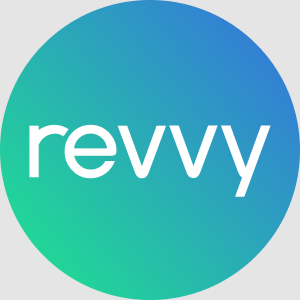Close More Deals With HubSpot’s Sales-to-Marketing Feedback Agent
Even the best marketing strategy falls short when it’s disconnected from real buyer conversations. Sales teams hear objections, confusion points, and...
3 min read
 Revvy
October 16, 2025
Revvy
October 16, 2025
In sales, every lost deal tells a story. Some fade quietly, while others reveal critical lessons about pricing, timing, or customer engagement. The challenge is those lessons are often buried deep in CRM notes, scattered across rep updates, or hidden in call transcripts. That’s exactly what the Deal Loss Agent was built to solve.
The Deal Loss Agent transforms your “closed-lost” data into actionable intelligence. Instead of seeing deal losses as dead ends, it helps your sales organization uncover patterns, identify root causes, and implement strategies to improve close rates moving forward.
The Deal Loss Agent is one of HubSpot’s latest AI-powered additions within the Breeze Marketplace. Once installed, you can access it through Breeze Studio → Agents → Deal Loss Agent, where it provides a data-driven view of your sales performance.
At its core, this agent analyzes deal trends across any time frame you define, whether that’s the last quarter, last 60 days, or even the entire past year. It examines both won and lost deals, identifies recurring reasons for loss, and generates a comprehensive report outlining why deals are slipping away and how to prevent future misses.
In short, it helps you transform hindsight into foresight, turning raw deal data into a blueprint for stronger sales strategies.
Getting started is simple. After adding the agent from the Breeze Marketplace, navigate to Breeze Studio and open the Deal Loss Agent under the Agents section.
When you launch it for the first time, you’ll be prompted to configure the analysis window, for example, the last 365 days, a specific quarter, or any custom time frame. This defines which deals the agent will evaluate. Once configured, you can also provide additional instructions to refine how the agent behaves.
Want it to summarize call transcripts, analyze competitor mentions, or review company news for deeper context? Just add those as tasks before publishing the configuration. When ready, click Run Agent, and the AI begins scanning your CRM for all relevant data points, deal records, call notes, email logs, and engagement histories.
When the analysis is complete, the agent produces a comprehensive report summarizing patterns, root causes, and practical recommendations. Each report includes a clear explanation of the analysis period, a breakdown of recurring themes, and a list of tactical steps to improve win rates.
Like all of HubSpot’s agentic AIs, the Deal Loss Agent is configurable and extensible. You can customize it to look for specific signals, integrate additional tools, or expand its data reach. For instance, you can add tools to:
Summarize recent HubSpot call transcripts to capture customer tone and objection context.
Analyze two-way object histories (like contact and deal relationships) to uncover behavioral correlations.
Research company news for market trends influencing deal outcomes.
By combining these data sources, the agent delivers a multi-dimensional view of deal losses—one that merges quantitative CRM data with qualitative interaction analysis.
Every Deal Loss report provides a clear, structured view of your team’s performance and opportunity areas. The output typically includes:
The agent identifies recurring trends in why deals are lost, such as pricing objections, competitor pressure, slow follow-ups, poor qualification, or engagement drop-offs.
It breaks down performance by product line, segment, and sales rep, revealing where losses cluster and why. You can immediately see which products underperform or where certain reps face repeat challenges.
Unlike subjective feedback or anecdotal insights, the Deal Loss Agent pulls directly from CRM records and call transcripts, grounding every finding in hard data.
Each report ends with a clear list of tactical and strategic actions, whether it’s improving objection handling, refining pricing models, or tightening follow-up cadences. These recommendations help teams move from analysis to action.
In the modern sales landscape, data without direction is noise. The Deal Loss Agent filters that noise, helping teams focus on what truly drives outcomes. By continuously analyzing deal performance, it allows sales leaders to:
Spot trends early before they impact quarterly goals.
Coach reps more effectively using data-backed insights.
Identify pricing or positioning gaps across products.
Turn loss reports into improvement playbooks for the entire sales organization.
Ultimately, this agent helps teams view every lost deal as a learning opportunity rather than a failure. The insights it provides empower teams to evolve their sales process, sharpen qualification, and align more closely with buyer priorities.
Every sales team faces losses, but not every team learns from them. The Deal Loss Agent ensures that no missed opportunity goes unexamined. It transforms what would typically be a reactive review process into a proactive, continuous improvement cycle.
By analyzing loss patterns, surfacing the “why,” and recommending data-driven actions, HubSpot’s Deal Loss Agent bridges the gap between insight and execution. It gives sales teams a chance to course-correct faster, close smarter, and win more often.
The Deal Loss Agent is more than an analytics tool, it’s your sales strategist in AI form. It brings clarity to your CRM, transforming lost deals into an evolving library of insights and improvements. By pairing historical data with actionable recommendations, it ensures your team never loses the same deal twice.
With the Deal Loss Agent, HubSpot continues to push the boundaries of what’s possible with AI in sales, turning data into decisions, and every “no” into the next “yes.”
Even the best marketing strategy falls short when it’s disconnected from real buyer conversations. Sales teams hear objections, confusion points, and...